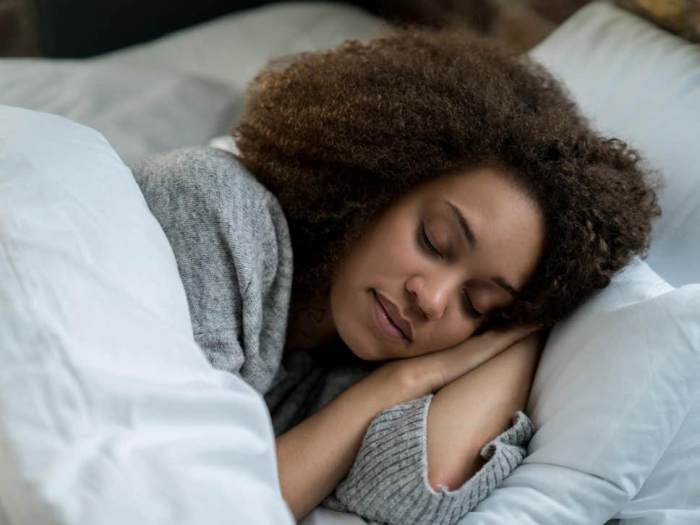A rare gene mutation has been discovered that explains why some people simply don’t need the eight hours that many of us aim for.
People with the mutated ADRB1 gene, which has so far been found in more than 50 families, sleep for two hours less than the average.
They are also often more optimistic, better multitaskers and more energetic. A study found they have a higher pain threshold, don’t suffer from jet lag and may even live longer.
Why this is the case is still a mystery.
Senior author Louis Ptáček, a neurologist at the University of California, San Francisco, (UCSF) said: “It’s remarkable that we know so little about sleep, given that the average person spends a third of their lives doing it.
“This research is an exciting new frontier that allows us to dissect the complexity of circuits in the brain and the different types of neurons that contribute to sleep and wakefulness.”
The gene mutation meant people were more active during wakefulness and also during REM sleep, according to the paper published in Neuron. In experiments with rats, scientists found that those they bred with the mutation needed 55 minutes less sleep each day.
“Before we identified the first short-sleep gene, people really weren’t thinking about sleep duration in genetic terms,” said study author Ying-Hui Fu, professor of neurology at UCSF.
“Sleep can be difficult to study using the tools of human genetics because people use alarms, coffee and pills to alter their natural sleep cycles.”
These sleep disruptors made it difficult to distinguish between people who naturally sleep for less time and those who do so because of artificial stimulation.
In 2009, scientists discovered that people who inherited a particular mutation of a gene called DEC2 averaged 6.25 hours of sleep a night. Those without the mutation slept on average for 8.06 hours.
This provided the first evidence that natural short sleep was – in some cases at least – genetic. However, this mutation is so rare that couldn’t explain all the cases of people who needed less sleep.
The latest breakthrough came when researchers identified a family that had three generations of natural short sleepers – none of whom had the DEC2 gene. Scientists combed through the family’s genome and uncovered the new ADRB1 mutation.
In experiments with mice, scientists discovered that the mutation promotes natural short sleep because it helps build brains that are easier to rouse and that also stay awake longer. Natural short sleepers don’t suffer any of the adverse health effects associated with sleep deprivation.
Scientists say this discovery could help develop drugs to combat conditions believed to be linked to not getting enough sleep.
“Today, most people are chronically sleep deprived,” Professor Fu said. “If you need eight to nine hours, but only sleep seven, you’re sleep-deprived.
“This has well-known, long-term health consequences. You’re more likely to suffer from cardiovascular disease, cancer, dementia, metabolic problems and a weakened immune system.”
The researchers added that this is the first step in understanding the link between good sleep and overall health.
“Natural short sleepers experience better sleep quality and sleep efficiency,” Professor Fu said.
“By studying them, we hope to learn what makes for a good night’s sleep, so that all of us can be better sleepers leading happier, healthier lives.”
The researchers now want to study the function of the ADRB1 protein in different parts of the brain. They are also looking at other families who have different genes that mean they sleep less.
The Independent
More about: Geneticmutation
















































